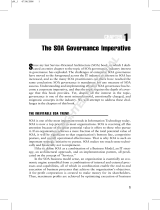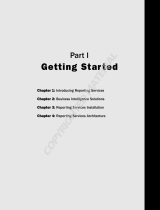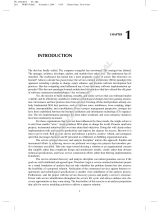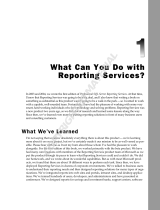Page is loading ...

3 Days
Advanced
Power Platform
Instructor-led
NA
The Solution Architect is responsible for the successful design, implementation, deployment and adoption of an overall
solution. The Solution Architect ensures that the solution meets the customer’s needs now and in the future. In this course,
students will learn about decisions a Solution Architect makes during an implementation, covering security, integrations,
Power Apps architecture, Power Automate architecture, and more. This course is designed to give you an introduction to the
Solution Architect role.
Senior Consultants (both functional and technical) that aspire to be Solution Architects, or current Solution Architects that are
new to the role.
After completing this course, students will be able to:
− Conceptualizing design
− Manage a project and good governance
− Understand Power Platform architecture
− Understand data modelling
− Understand Power Automate architecture
− Understand security modelling
− Apply systems integration
− Understand Dynamics 365 Applications architecture
Module 1: Becoming a Solution
Architect/Getting to know your
customer
Lessons
− Define a Solution Architect
− Role of a Solution Architect on
projects
− Project Methodology
− Getting to know your customer
− Group exercise - Getting to
know your customer
Module 2: Conceptualizing the
design from requirements
Lessons
− How to lead the requirement
collection effort
− Using fit gap analysis
− Pillars of good architecture
− Blueprinting the solution
architecture
− Group exercise - Design from
requirements
Module 3: Project governance
and working as a team
Lessons
− Solution Architect's role in
project governance
− Techniques for keeping a
project on track
− Scenarios that could cause a
project to fail
− Group exercise - Project
governance and working as a
team
Module 4: Power Platform
Architecture
Lessons
− Key Power Platform
architecture components
− Understand how platform
design and limits influence
solution architectures
− Updates and feature releases
− Understand how to
communicate how the platform
meets customer needs
Module 5: Data Modelling
Lessons
− Data model influences
− Data model strategy
− Data types
− Data relationships
− Group exercise - Data
modelling
Module 6: Analytics and artificial
intelligence
Lessons
− Planning and evaluating
requirements
− Operational reporting
− Power BI
− Enterprise BI
− Pre-built insights and custom
AI
Module 7: Power Apps
Architecture
Lessons
− Discuss options for apps and
how to choose where to start
− Discuss app composition
options
− Using components as part of
your app architecture
− Considerations for including
Portals as an app in your
architecture

− Group exercise - Power Apps
Architecture topics
Module 8: Application Lifecycle
Management (ALM)
Lessons
− Microsoft vision and Solution
Architect's role in ALM
− Environment strategies
− Defining a solution structure
for your deliverable
Lab: ALM Hands-on Lab
Module 9: Power Automate
Architecture
Lessons
− Discuss options for automation
and custom logic
− Review considerations for
using triggers and common
actions
− Explore using Business
Process Flows (BPF) to guide
users through business
processes
− Group Exercise - Evaluate
scenarios for Power Automate
usage
Module 10: Security Modelling
Lessons
− Solution Architect's role in
security modelling
− Discovery and learning your
client's environment
− Controlling access to
environments and resources
− Controlling access to CDS
Data
− Group Exercise - Security
Modelling
Module 11: Integration
Lessons
− Solution Architects role in
Integrations
− What is an integration and why
do we need it
− Platform features that enable
integration
− CDS Event Publishing
− Scenarios for group discussion
Module 12: Dynamics 365
Applications Architecture
Lessons
− Solution Architect's role when
deploying Dynamics 365 apps
− Architecture Considerations
for primary apps
− Group Exercise - App specific
working groups evaluate
requirements
Module 13: Testing and Go Live
Lessons
− Solution Architect's role with
testing and go live
− Planning for testing
− Planning for go live
This course will prepare delegates to write the Microsoft PL-600: Microsoft Power Platform Solution Architect exam.
/






